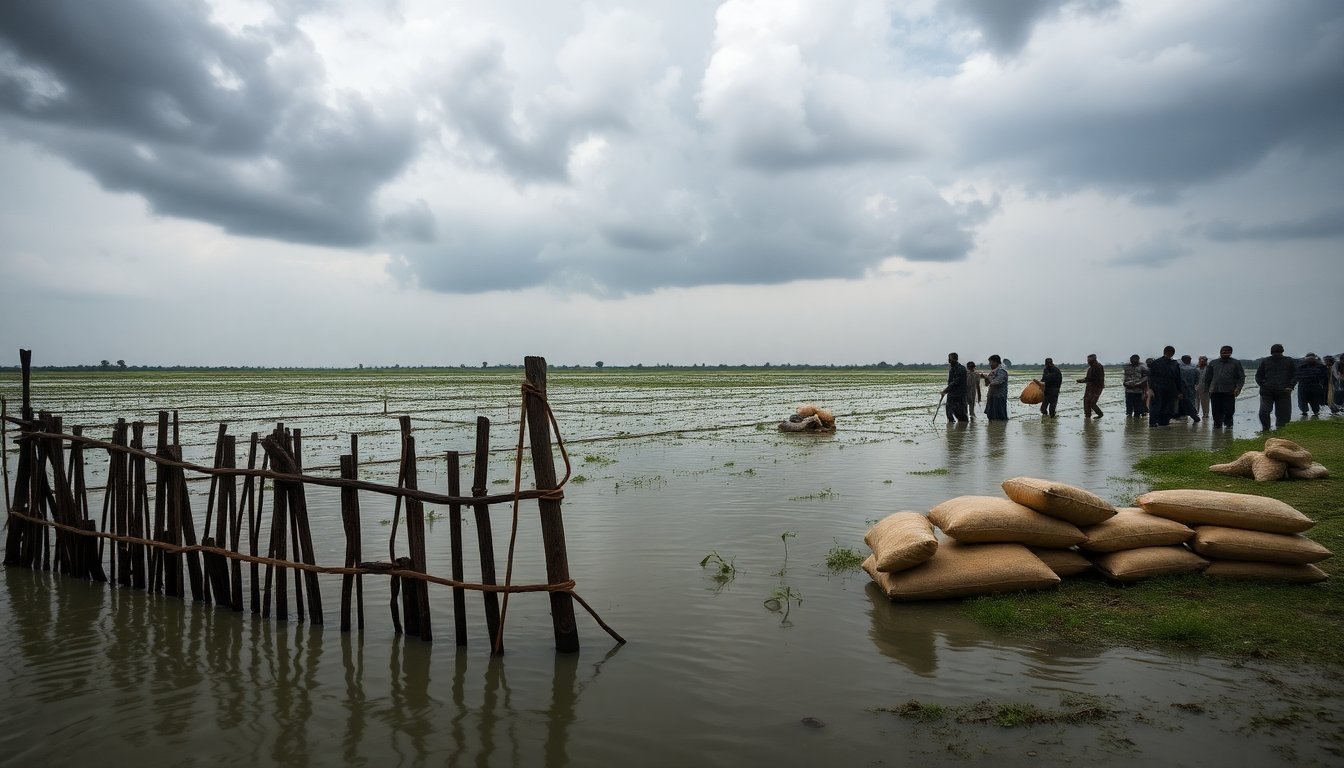Table of Contents
The catastrophic flooding affecting Pakistan and parts of India has once again highlighted critical issues regarding climate change, water management, and the geopolitical tensions between these neighboring countries. As monsoon rains unleash devastation, experts urge caution against oversimplified narratives that assign blame without acknowledging the complex interplay of environmental factors and historical agreements.
The Current Flooding Situation
This year, Pakistan has experienced devastating monsoon floods for the second time in three years, particularly impacting Punjab province. The flooding has resulted in hundreds of fatalities and displaced millions. Similarly, Indian states like Himachal Pradesh and Uttarakhand have also faced severe flooding. As of late June, Pakistani authorities reported nearly 884 fatalities, with Punjab significantly affected. India has reported over 100 casualties, raising alarms on both sides of the border.
Despite this shared suffering, geopolitical tensions between Pakistan and India persist. Pakistani officials have accused India of intentionally releasing water from dams, worsening the flooding in Punjab. Federal Minister Ahsan Iqbal described this water release as an act of aggression, referencing the Ravi, Sutlej, and Chenab rivers that flow from Indian territory into Pakistan. However, this narrative warrants closer scrutiny.
Experts contend that the assertion of India deliberately flooding Pakistan lacks substantial evidence. They emphasize that the recent floods are largely due to climate change, aging infrastructure, and natural hydrological cycles, rather than any intended action by India. Both nations are grappling with extreme weather patterns exacerbated by climate change, including glacial melting and heavy rains that lead to dangerously high river levels.
Historical Context and Water Management Issues
The Indus Waters Treaty (IWT), which governs the sharing of river waters between India and Pakistan, is under strain due to recent conflicts. The treaty historically allows India to control the flow of three eastern rivers while Pakistan manages three western rivers. However, India’s suspension of its participation in the IWT raises concerns about potential water shortages or flooding due to uncoordinated water management.
Experts caution that attributing Pakistan’s flooding solely to Indian dam releases oversimplifies a more complex issue. The aging infrastructure on both sides was designed decades ago, without consideration for the realities of climate change. Enhanced monitoring and data-sharing practices are essential for effective cross-border water management.
Significant dams like Salal and Baglihar on the Chenab and Bhakra on the Sutlej play a crucial role in regulating river flows. However, heavy rains and glacial outbursts can overwhelm these dams, necessitating controlled water releases to prevent structural failures. Such releases are standard flood management procedures and should not be mischaracterized as acts of aggression.
Looking Ahead: The Need for Cooperative Solutions
As the flooding crisis continues, a cooperative approach is vital for addressing shared challenges related to climate change and water management. Both nations must engage in open dialogues to rebuild trust and collaborate on solutions prioritizing the welfare of their populations over political narratives.
Climate change is a reality that neither nation can confront in isolation. The increasing intensity and unpredictability of monsoon seasons require India and Pakistan to reevaluate their water management strategies, invest in infrastructure improvements, and enhance disaster response capabilities. Fostering cooperation around water management could facilitate more significant diplomatic engagements, helping to reduce tensions and restore confidence between the two nations.
In conclusion, while the floods have reignited historical grievances and blame, understanding the underlying factors is crucial. A comprehensive approach that considers climate change impacts, the necessity for robust infrastructure, and the importance of international cooperation is imperative for both Pakistan and India as they navigate this crisis and prepare for future challenges.


